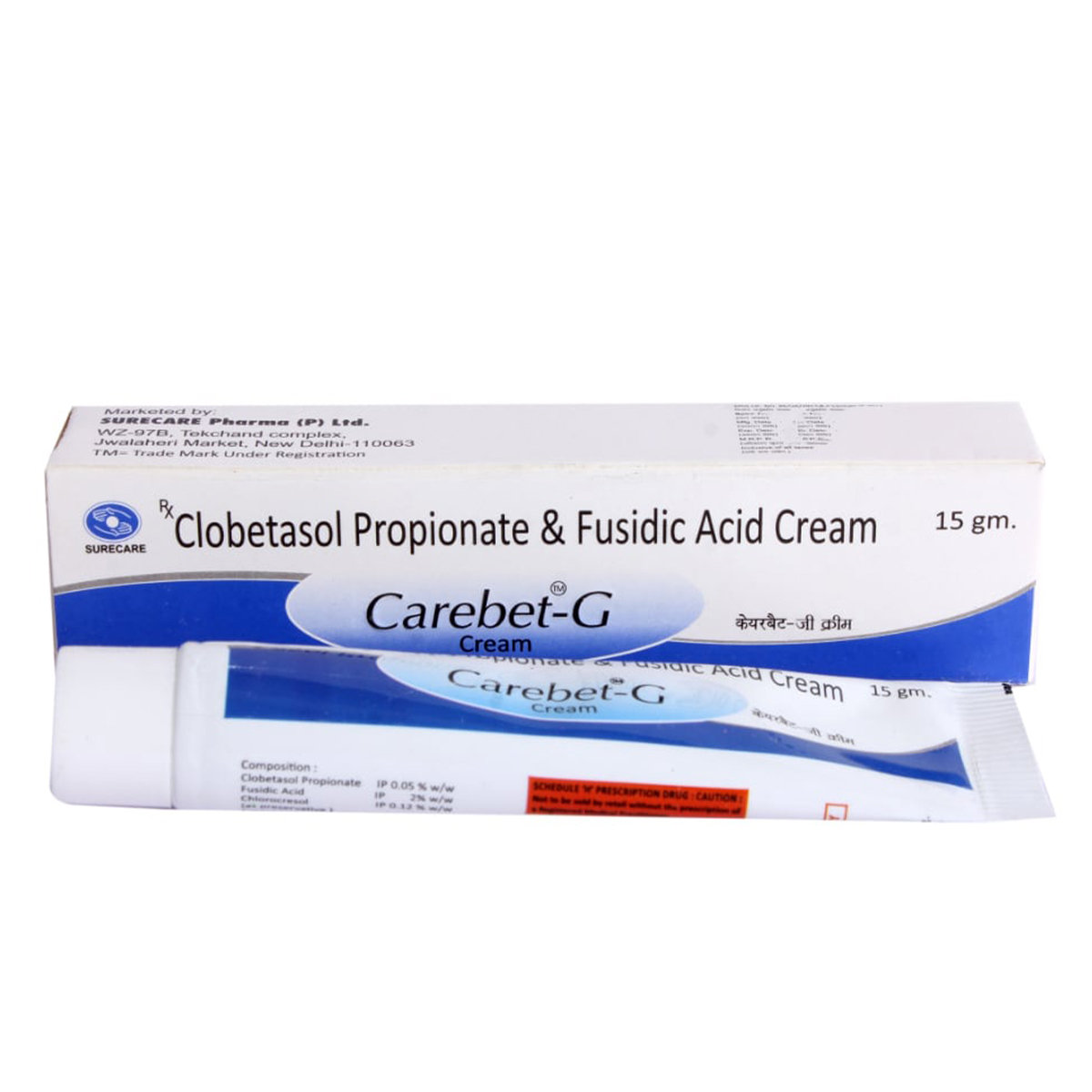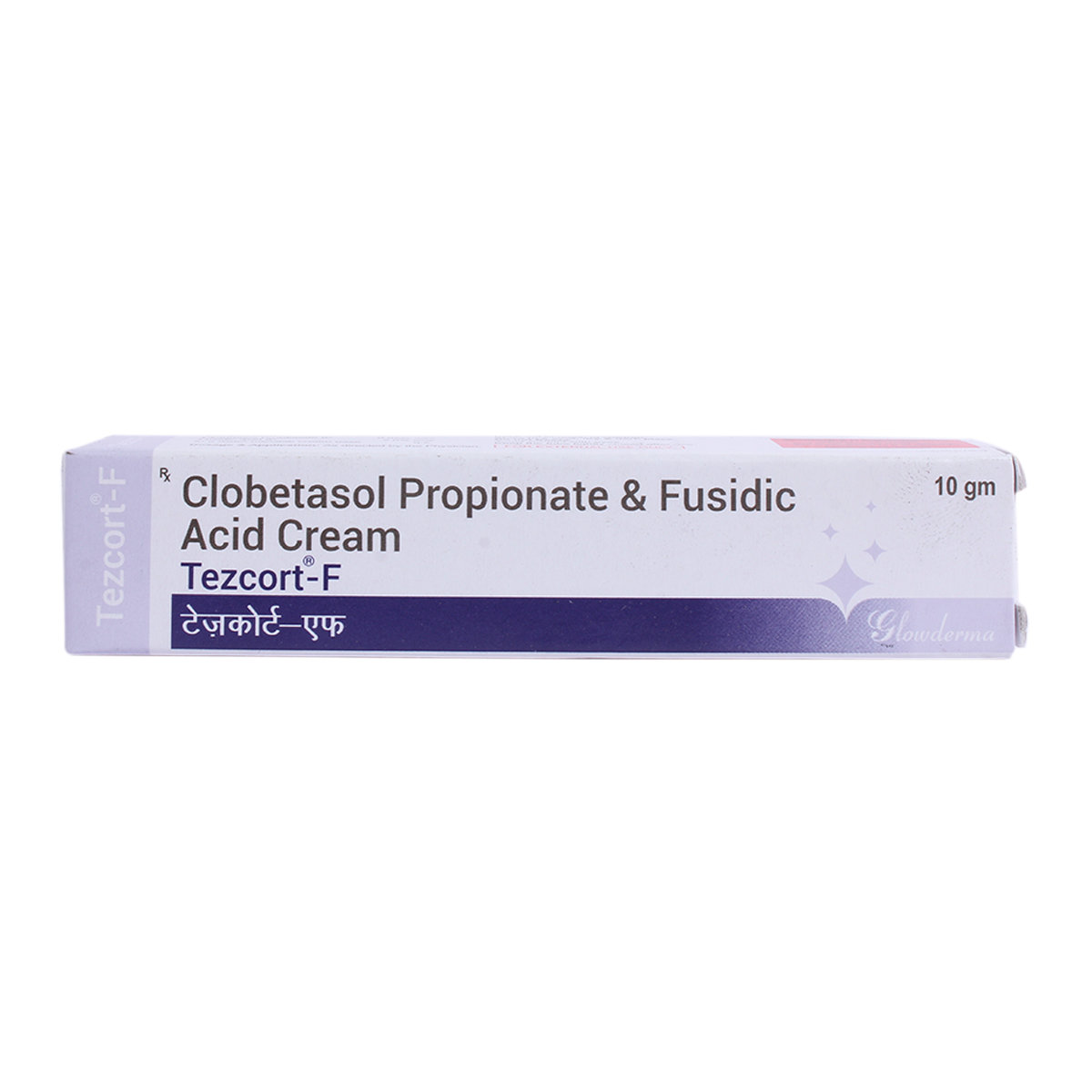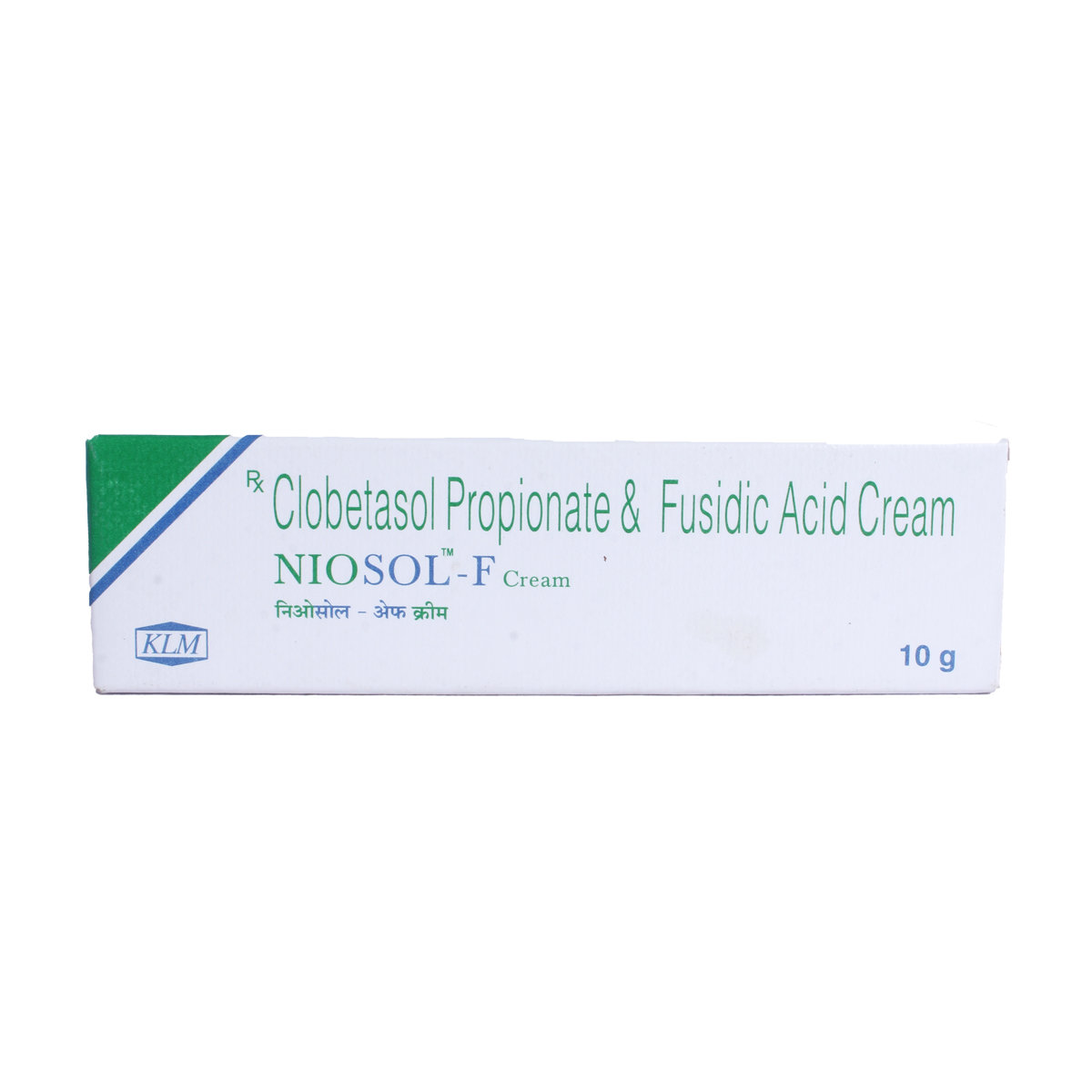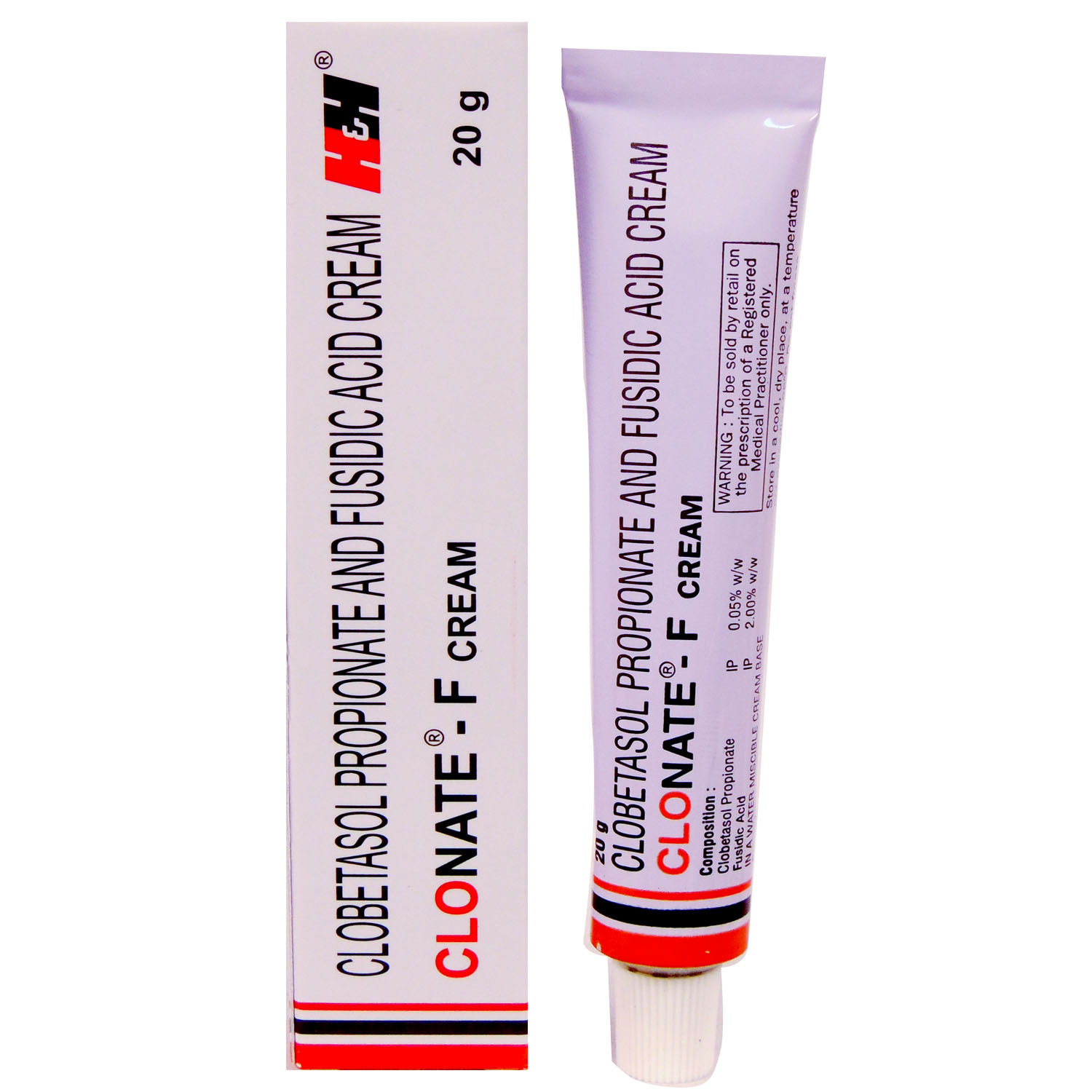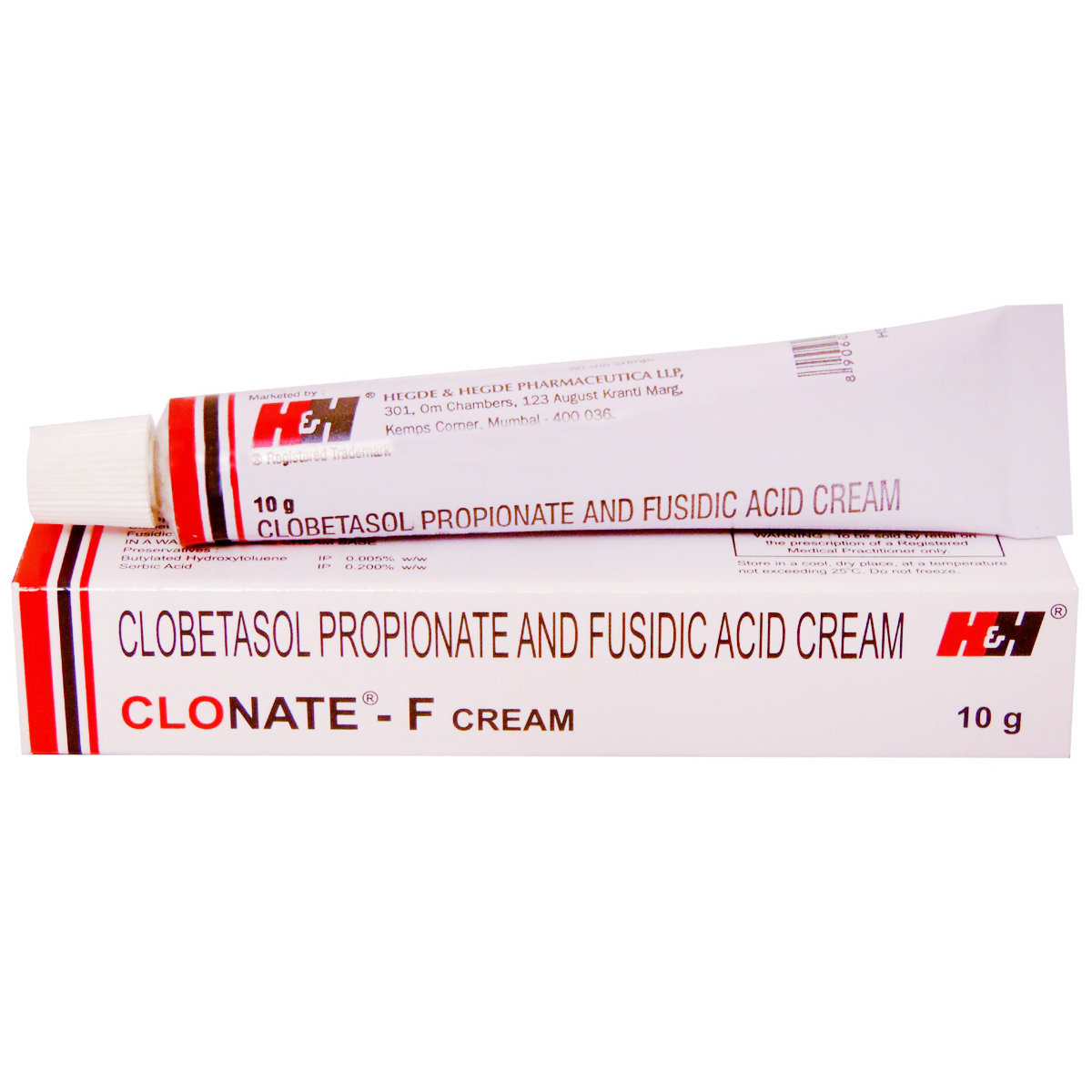- Home
- Clobiderm-F Cream
Clobiderm-F Cream Substitute
Clobiderm-F Cream Substitute
Medicine Composition:
CLOBETASOL-0.05%W/W+FUSIDIC ACID-2%W/WAll Substitutes & Brand Comparisons
RX
Clopic-F Cream 15 gm
Atopic laboratories Pvt Ltd
₹154.5
(₹9.27/ 1gm)
42% CHEAPERRX
Out of StockDicfu-C Cream
Nidus Pharma Pvt Ltd
₹105
(₹9.45/ 1gm)
41% CHEAPERRX
Paedisone F Cream 15 gm
Praise Pharma
₹173
(₹10.38/ 1gm)
35% CHEAPERRX
Niosol-F Cream 20 gm
Klm Laboratories Pvt Ltd
₹257.5
(₹11.59/ 1gm)
27% CHEAPERRX
Clobsave-F Cream 15 gm
Rockmed Pharma Pvt Ltd
₹196.5
(₹11.79/ 1gm)
26% CHEAPERRX
Solnate-F Cream 15 gm
Arka Vital Science Pvt Ltd
₹208
(₹12.48/ 1gm)
22% CHEAPERRX
Resdermovate-F Cream 20 gm
Amwill Healthcare Pvt Ltd
₹281
(₹12.65/ 1gm)
21% CHEAPERRX
Carebet G Cream 15 gm
Surecare Pharma Pvt Ltd
₹225
(₹13.5/ 1gm)
15% CHEAPERRX
Tezcort F Cream 10 gm
Glowderma Lab Pvt Ltd
₹150
(₹13.51/ 1gm)
15% CHEAPERRX
Clobirex-F Cream 20 gm
Dermarex HealthCare India Pvt Ltd
₹304.5
(₹13.71/ 1gm)
14% CHEAPERRX
Clopinate-F Cream 10 gm
Monichem Healthcare Pvt Ltd
₹140.5
(₹14.05/ 1gm)
12% CHEAPERRX
Fusi-CP Cream 10 gm
Hindustan Medicare
₹159
(₹14.31/ 1gm)
10% CHEAPERRX
Niosol-F Cream 10 gm
Klm Laboratories Pvt Ltd
₹161
(₹14.49/ 1gm)
9% CHEAPERRX
Clonate-F Cream 20 gm
Hegde & Hegde Pharmaceutica Llp
₹342
(₹15.39/ 1gm)
3% CHEAPERRX
Clonate-F Cream 10 gm
Hegde & Hegde Pharmaceutica Llp
₹215.5
(₹19.4/ 1gm)
21% COSTLIER

When Should You Consider Switching from Clobiderm-F Cream?
Patients may explore substitutes in the following scenarios:
- High monthly cost of Clobiderm-F Cream
- Non-availability in local pharmacies
- Generic recommendation by a doctor
- Side effects or better tolerability with alternatives
What to Know Before Switching
Before you switch from Clobiderm-F Cream to another medicine, here are some important points to keep in mind:
Same salt, different brands:
Most substitutes contain the same active ingredient - CLOBETASOL-0.05%W/W+FUSIDIC ACID-2%W/W, but the fillers, coating, or manufacturing quality may vary slightly.
Consult your doctor first:
Even if the salt is the same, your doctor can confirm if the substitute is right for your condition, dosage, and health history.
Watch out for allergies or reactions:
Some people may react differently to certain brands due to inactive ingredients. If you notice any side effects, inform your doctor immediately.
Price ≠ effectiveness:
A lower-priced substitute doesn't mean it's less effective. Many generic medicines work just as well as branded ones.
Check the dosage form and strength:
Always match the substitute’s strength (e.g., 5mg, 10mg) and form (tablet, capsule, syrup) with what your doctor prescribed.
Uses
Clobiderm-F Cream is used in the treatment of Bacterial skin infections. The detailed uses of Clobiderm-F Cream are as follows:
- Treatment of Bacterial Skin Infections: Clobiderm-F Cream effectively treats bacterial skin infections by targeting and eliminating the bacteria causing them, while also providing relief for eczema and dermatitis complicated by bacterial infections.
- Reduces Inflammation: By minimizing inflammation and swelling, Clobiderm-F Cream helps to alleviate the discomfort associated with bacterial skin infections.
- Relieves Symptoms: Clobiderm-F Cream provides quick relief from itching, redness, and discomfort, making it easier to manage bacterial skin infections.
- Heals Infected Skin: Clobiderm-F Cream supports the healing process of infected cuts, wounds, impetigo, and other skin infections, promoting healthier skin.
Medicinal Benefits
- Clobiderm-F Cream helps treat bacterial skin infections and associated symptoms such as redness, swelling, and itching.
- Clobetasol reduces inflammation, itching, and irritation by blocking the release of inflammatory chemical messengers.
- Fusidic acid prevents the growth and multiplication of bacteria by stopping protein synthesis essential for bacterial survival.
- It provides effective relief from inflammatory skin conditions caused by bacterial infections.
- Clobiderm-F Cream promotes faster healing of infected skin areas and helps restore normal skin texture.
- It prevents the spread of infection to nearby skin regions.
- Clobiderm-F Cream offers dual-action antibacterial and anti-inflammatory effects for faster, more effective symptom relief.
FAQs
The substitutes of Clobiderm-F Cream contain the same active salt(s) - CLOBETASOL-0.05%W/W+FUSIDIC ACID-2%W/W. However, they may differ in price, manufacturing quality, and inactive ingredients. Speak to your doctor to find a suitable option.
Switching to a generic substitute medicine in the place of Clobiderm-F Cream is often possible if it has the same salt, strength, and dosage form. But always check with your doctor before making any changes to your medication.
Generics versions of Clobiderm-F Cream are typically more affordable because they don’t include the original brand's research, development, and marketing costs. They contain the same active ingredient and are approved for safety and effectiveness.
Most people don’t notice any difference. However, some may react to different fillers or coatings. If you notice any unusual symptoms after switching, consult your doctor.
Make sure the new medicine has the same active salt, strength, dosage form. Always confirm the change with your doctor or pharmacist.
Substitutes of Clobiderm-F Cream meet the same safety and efficacy standards as Clobiderm-F Cream, but small differences in absorption or formulation can exist. A doctor can help you choose the right one for your needs.
Yes. Substitutes of Clobiderm-F Cream may vary in color, size, or shape due to differences in manufacturing and branding, but this does not affect how they work.
Yes, it’s generally safe to switch between multiple substitutes of Clobiderm-F Cream if they have the same salt and strength. However, always inform your doctor so they can monitor how your body responds.
Yes, many people safely use substitutes of Clobiderm-F Cream for long-term treatment. Just ensure it’s done under medical supervision.
If your symptoms stay under control or lab results remain stable, the substitute for Clobiderm-F Cream is likely working well. Regular follow-ups with your doctor are important.
Absolutely. Even with the same salt, small differences can affect how your body responds when switching from Clobiderm-F Cream to its substitute. Always consult your doctor before switching.
Clobiderm-F Cream is used to treat bacterial skin infections. It works by killing the infection-causing bacteria and inhibiting the release of certain chemical messengers that cause redness, itching, and swelling.
Yes, Clobiderm-F Cream may be used to treat eczema (redness and itching of the skin) and also dermatitis (swollen, dry and red skin) caused by bacteria. Clobiderm-F Cream is a combination of corticosteroid and antibiotic that stops the growth of bacteria and decreases redness and swelling.
You are recommended to cover the infected skin with bandages or dressings only if advised by your doctor; otherwise, it may increase the risk of side effects. In the case of babies, a nappy acts as a dressing.
You are recommended to use Clobiderm-F Cream for as long as your doctor has prescribed it. However, if the condition persists or worsens after using Clobiderm-F Cream for 2 weeks, please consult a doctor.
You are recommended to use Clobiderm-F Cream on the face only if advised by your doctor, and do not use it for more than 5 days on the face, as the skin on the face thins easily. Avoid the use of dressing or bandages on the face.
You are not recommended to use Clobiderm-F Cream for more than the prescribed time, as it may increase the risk of adverse effects and make skin more sensitive to Clobiderm-F Cream. Also, bacteria may become resistant to Clobiderm-F Cream.
No, you are not recommended to stop taking Clobiderm-F Cream without consulting your doctor as it may worsen the infection or cause recurring symptoms. Therefore, take Clobiderm-F Cream for as long as your doctor has prescribed it, and if you experience any difficulty while taking Clobiderm-F Cream, please consult your doctor.
Clobiderm-F Cream is not intended to treat fungal infections. It is meant to treat bacterial skin infections. If you have a fungal infection, you should consult a doctor or pharmacist for advice on appropriate treatment options.
To use Clobiderm-F Cream, wash your hands, clean and dry the affected area, and apply a thin layer of cream 2-3 times a day or as directed by your doctor. Gently massage it into the skin until fully absorbed. Use it for the full recommended treatment period, and discontinue if you experience side effects or allergic reactions. Remember to follow the instructions provided by your doctor or pharmacist and read the product label carefully before use. If you have any questions, consult a healthcare professional.
When using Clobiderm-F Cream, it's essential to exercise caution and follow guidelines for safe usage. Avoid applying the cream to areas of healthy skin or sensitive zones, and take care to prevent accidental contact with your eyes, nose, or mouth. Thoroughly wash your hands after application, and be mindful of potential allergic reactions to the ingredients. Adhere to the recommended treatment duration and frequency to avoid overuse or underuse, and discontinue application if you experience any adverse effects like redness, itching, or burning sensations. If you're pregnant or breastfeeding, consult your doctor before using the cream, and ensure it's stored out of reach of children and pets to avoid any potential harm.
Store Clobiderm-F Cream at room temperature, away from direct sunlight, moisture, and heat. Keep it in its original packaging, tightly closed, and out of reach of children and pets. When disposing of the Clobiderm-F Cream, seal the tube or container and throw it away in a designated waste collection facility or a pharmacy that accepts old or expired medications. Don't throw it in the trash or down the drain.
Though Clobiderm-F Cream is a safe and powerful treatment, it's not suitable for everyone. If you're allergic to any of the ingredients, have open wounds or broken skin, or are struggling with severe skin infections, rosacea, or acne-prone skin, you should avoid using it. Additionally, pregnant or breastfeeding women should only use it under medical guidance. Be cautious when applying the cream to sensitive areas or damaged skin, and avoid mixing it with other steroid creams or ointments. By understanding these contraindications and cautions, you can use Clobiderm-F Cream safely and effectively to address your skin concerns."
Buy best Dermatology products by
Glenmark Pharmaceuticals Ltd
Canixa Life Sciences Pvt Ltd
Klm Laboratories Pvt Ltd
Sun Pharmaceutical Industries Ltd
Cipla Ltd
Intas Pharmaceuticals Ltd
Ajanta Pharma Ltd
East West Pharma India Pvt Ltd
Dr Reddy's Laboratories Ltd
Abbott India Ltd
Brinton Pharmaceuticals Ltd
Skinocean Pharmaceuticals
Leeford Healthcare Ltd
Amwill Healthcare Pvt Ltd
Alkem Laboratories Ltd
Atopic laboratories Pvt Ltd
Hegde & Hegde Pharmaceutica Llp
Torrent Pharmaceuticals Ltd
Palsons Derma Pvt Ltd
Dermacia Healthcare
Oaknet Healthcare Pvt Ltd
Yaher Pharma
Ipca Laboratories Ltd
Med Manor Organics Pvt Ltd
Micro Labs Ltd
Dermocare Laboratories Gujarat Llp
Talent India Pvt Ltd
Apex Laboratories Pvt Ltd
Mankind Pharma Pvt Ltd
Kivi Labs Ltd
Nemus Pharmaceuticals Pvt Ltd
Systopic Laboratories Pvt Ltd
Menarini India Pvt Ltd
Regaliz Medicare Ltd
Ethinext Pharma
Zydus Cadila
Inex Medicaments Pvt Ltd
Mohrish Pharmaceuticals Pvt Ltd
Lupin Ltd
Newtrimed Healthcare Pvt Ltd
Hbc Dermiza Healthcare Pvt Ltd
Mrhm Pharma Pvt Ltd
Praise Pharma
Zydus Healthcare Ltd
Eskon Pharma
GlaxoSmithKline Pharmaceuticals Ltd
La Pristine Bioceuticals Pvt Ltd
Wallace Pharmaceuticals Pvt Ltd
Glowderma Lab Pvt Ltd
Biocute Life Care
Sol Derma Pharmaceuticals Pvt Ltd
Macleods Pharmaceuticals Ltd
Aurel Biolife
Ethicare Remedies Pvt Ltd
Galcare Pharmaceuticals Pvt Ltd
Percos India Pvt Ltd
Rockmed Pharma Pvt Ltd
Kaizen Drugs Pvt Ltd
Connote Healthcare
Elder Pharmaceuticals Ltd
Rely On Pharmaceuticals
Zee Laboratories Ltd
Karlin Pharmaceuticals & Exports Pvt Ltd
Yap Bioceuticals
Wockhardt Ltd
Alniche Life Sciences Pvt Ltd
Gary Pharmaceuticals Pvt Ltd
La Med Healthcare Pvt Ltd
Prism Life Sciences Ltd
Rhine Biogenics Pvt Ltd
Akumentis Healthcare Ltd
Apple Therapeutics Pvt Ltd
Leogard Pharmaceuticals Pvt Ltd
Lyra Laboratories Pvt Ltd
P and P Dermaceuticals Pvt Ltd
Adonis Laboratories Pvt Ltd
Arka Vital Science Pvt Ltd
Eumedica Pharamceuticals
Indiabulls Pharmaceuticals Pvt Ltd
Albatross Healthcare Pvt Ltd
Yash Pharma Laboratories Pvt Ltd
Capital Pharma
Dermajoint India
Dermarex HealthCare India Pvt Ltd
Iceberg Health Care Pvt Ltd
Glasier Wellness Inc
Grace Derma Healthcare Pvt Ltd
Oziel Pharmaceuticals Pvt Ltd
Bioswizz Pharmaceuticals Ltd
FDC Ltd
Medcure Organics Pvt Ltd
Salve Pharmaceuticals Pvt Ltd
West Coast Pharmaceuticals Pvt Ltd
Entod Pharmaceuticals Ltd
Jenburkt Pharmaceuticals Ltd
Olcare Laboratories Pvt Ltd
Anhox Healthcare Pvt Ltd
Biochemix Health Care Pvt Ltd
Indchemie Health Specialities Pvt Ltd
Indolands Pharma Pvt Ltd
BODY CREAM
Body Lotion
Soap
Face Cream
Shampoo
Sun Screen
Face Gel
Face Wash
HAIR SOLUTION
BODY GEL
Face Serum
Hair Serum
Hair Lotion
Dusting Powder
ANTISEPTIC
Body Wash
Face Lotion
FACE CLEANSER
Body Spray
Foot Cream
Conditioner
Eye Cream
Eye Gel
Cleanser
Hair Cream
Hair Gel
Hair Spray
FUNGAL INFECTION
Hair Oil
Sanitizer
Specialty Supplements
Face Mask
Skin Ointment
Lip Balm
Capsule
Eye Serum
Intimate Wash
Hand Cream
Facial Spray
Face Toner
Hair Mask
Hand Wash
SPECIALITY SUPPLEMENT
Tablet
BABY SUNSCREEN
Body Butter
Body Scrub
EYE SOLUTION
FACIAL WIPE
Gargle
Hair Color
Hair Tonic
Intimate Spray
Lip Serum
VITAMIN D



